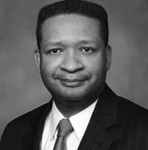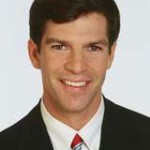By Artur Davis, on Mon Jan 9, 2012 at 2:00 PM ET  Rebuttal #6: Artur Davis Rebuttal #6: Artur Davis
[John Y.’s Provocation; The RP’s Rebuttal #1; Ron Granieri’s Rebuttal #2; Rod Jetton’s Rebuttal #3; Krystal Ball’s Rebuttal #4; John Y.’s First Defense; Rod Jetton’s Response #1; Jeff Smith’s Rebuttal #5; John Y.’s Second Defense; Ron Granieri’s Response #1; John Y.’s Third Defense]
I’m a Johnny-come-lately to what sounds like an incredible conversation, so I will wade in very selectively, with these random observations:
- I like Jeff’s observations if only because they are the best explanation for why a decidedly average looking guy like me didn’t go further! More seriously, I think we will forever remain on the lookout for an explanation of what makes winners in politics. If it were all looks and charm, Kennedy crushes Nixon, instead of beating him by a vote per precinct; I’ve seen the charming losers–I vividly recall from my candidate recruitment days at the DCCC, a Nebraska guy whose looks had female staffers rearranging their schedules to meet him; the voters were less enraptured than the staffers and the online world; he lost by about 20 points — and I’ve seen the winners whose charisma would’t carry them past the corner next to the punch bowl in most other settings.
- My best guess is that for all our jaded reasons not to believe it, issues do matter, but sometimes only in the most reductionist sense–“does the guy or lady believe in people like me?”;”is this person going to deliver on the one or two things I really value?” I deliberately don’t use the word trust, by the way, because I think the trust quotient is so low in politics today that relying on it proves too little. I also don’t mean to endorse the very test I describe — part of leadership is sometimes deciding to deliver not on the one thing you care about, but the one thing that really will work better. Sometimes, “believing in people like me” means leading too narrowly, and shortchanging the broader good for one faction.
Read the rest of…
The RPs Debate Presidential Leadership: Artur Davis Rebuts
By John Y. Brown III, on Mon Jan 9, 2012 at 1:30 PM ET  John Y.’s Third Defense John Y.’s Third Defense
[John Y.’s Provocation; The RP’s Rebuttal #1; Ron Granieri’s Rebuttal #2; Rod Jetton’s Rebuttal #3; Krystal Ball’s Rebuttal #4; John Y.’s First Defense; Rod Jetton’s Response #1; Jeff Smith’s Rebuttal #5; John Y.’s Second Defense; Ron Granieri’s Response #1]
Great point, Ron, but let me play the contrarian’s contrarian on looks and politics and point out that although I brought up the issue and am trying to make the case that we need to think more deliberately and deeply about the candidates than we do, I still seem to vote for the better looking ones myself.
I guess what I’m trying to say is that it’s important to be deep when discussing presidential politics, but don’t underestimate the shallow. Not because of shallow voters.
Read the rest of…
The RPs Debate Presidential Leadership: John Y. Defends
By Ronald J. Granieri, on Mon Jan 9, 2012 at 1:00 PM ET  Ron Granieri’s First Response Ron Granieri’s First Response
[John Y.’s Provocation; The RP’s Rebuttal #1; Ron Granieri’s Rebuttal #2; Rod Jetton’s Rebuttal #3; Krystal Ball’s Rebuttal #4; John Y.’s First Defense; Rod Jetton’s Response #1; Jeff Smith’s Rebuttal #5; John Y.’s Second Defense]
John Y. is right to bring up the power of TV, but I have to play the contrarian idealist for just one more moment.
Everyone loves to make the argument that surface appearance is what matters most in politics, especially when their candidate loses. It is yet another way to assume that the people who vote differently than you are too shallow and superficial to understand the depth and brilliance of your own positions.
It is a dangerous fallacy, though, because it can lead strategists to believe that winning elections ONLY involves the manipulation of images and to forget the significance of the actual political ideas and positions behind them.
Of course it helps to be pleasant and nice looking in most cases. But if sex appeal was all you needed for electoral success, then Sarah Palin would be President, and the RP would be governor of Kentucky. [ED’s note: Aw shucks!] Ask Rick Perry (or, if you want a coherent answer, don’t): it matters what candidates say when they open their pretty mouths.
By John Y. Brown III, on Mon Jan 9, 2012 at 12:30 PM ET  John Y.‘s Second Defense John Y.‘s Second Defense
[John Y.’s Provocation; The RP’s Rebuttal #1; Ron Granieri’s Rebuttal #2; Rod Jetton’s Rebuttal #3; Krystal Ball’s Rebuttal #4; John Y.’s First Defense; Rod Jetton’s Response #1; Jeff Smith’s Rebuttal #5]
Jeff’s post reminds me of the famous story about the Nixon –Kennedy debates.
On TV Nixon, who had refused pancake make-up, had his infamous 5 o’clock shadow and sweated profusely. Kennedy, by contrast, was cool, calm, and collected—and at his Kennedy-esque best.
Learn to help create beauty with a beauty school diploma.
Those voters watching on television believed Kennedy won by a 3-1 margin. Those listening on radio believed Nixon won by a 3-1 margin.
Which opens up an entire new line of discussion: How has TV has changed the message and the messengers—we get for political candidates today?
Abe Lincoln would have withdrawn from Iowa months before Michelle Bachmann had to. And if Mitt Romney had showed up to debate with Lincoln and Stephen Douglass a while back, he would’ve have been laughed off stage and beaten up as a dandy. But that’s another thread altogether.
Read the rest of…
The RPs Debate Presidential Leadership: John Y. Defends
By Jeff Smith, on Mon Jan 9, 2012 at 12:00 PM ET  Rebuttal #5: Jeff Smith Rebuttal #5: Jeff Smith
[John Y.’s Provocation; The RP’s Rebuttal #1; Ron Granieri’s Rebuttal #2; Rod Jetton’s Rebuttal #3; Krystal Ball’s Rebuttal #4; John Y.’s First Defense; Rod Jetton’s Response #1]
Love reading everyone’s posts…especially Rod’s, because unlike most of you, I can hear the accent and it makes me feel as if i’m back home in Missour-ah.
It’s really hard to top the insightful analysis you all provided. So I’ll just say this, at the risk of offending: Most campaigns can largely be reduced to sex appeal.
Oh sure, there are a few voters who read a candidate’s seven white papers, and the opponent’s seven white papers, and decide that they agree with Candidate A on four and Candidate B on three, and so they’re gonna vote for Candidate A.
But those voters are regrettably rare. The majority are like Rod’s harem and vote on appearance. This is why I find it so mystifying that the RP ever got elected dogcatcher. [ED’s Note: HEY?!?!]
Campaigns are largely about likeability and, implicitly, sexuality. I hired attractive, appealing college kids in part to lure other kids to volunteer. I flirted with women in senior centers. Did I hone my policy chops? Sure, but unfortunately, I probably winked at ten times more guys in the Pridefest parade than I gave policy answers to. Sorry, I’m 5’5″; I had to WORK it, baby.
Read the rest of…
The RPs Debate Presidential Leadership: Jeff Smith Rebuts
By Rod Jetton, on Mon Jan 9, 2012 at 11:30 AM ET
Great points, John Y. I really was not taking shots at you for having feelings. Clearly, I need to soften up a bit myself. I very much enjoyed your post and definitely can relate to switching from running the race to just coaching. Although, I still like to tell everyone how fast I used to be.
But on Romney, I think the “he’s out of touch, or not one of us” analysis is too deep. I’m not saying in a general election independent voters may feel that way, but Republican primary voters are simply wary of a guy who said he was pro-choice and OK with gun control.
Additionally, his Mormon faith is hard for many evangelicals to swallow. Most of us have been taught all our lives that Mormonism is a cult. So for many evangelicals, getting past that takes a lot of work. They will vote for anyone who is even close to their views before picking a Mormon.
Maybe some voters feel it makes him different from them as you and Krystal noted, but most primary voters who have a problem with his religion will admit he is great at business, and he is good on the issues but…
By John Y. Brown III, on Mon Jan 9, 2012 at 11:00 AM ET 
John Y.’s First Defense
[John Y.’s Provocation; The RP’s Rebuttal #1; Ron Granieri’s Rebuttal #2; Rod Jetton’s Rebuttal #3; Krystal Ball’s Rebuttal #4]
Great commentary and insights and I feel the Alpha-male urge to jump in and defend my original point. No sucker punches. Promise. But possibly some territorial markings.
First, Rod, please forgive my depth and seeming over-analysis. I try not to reflect in mixed political company because it’s bad manners. Reflectiveness, I feel, is the liberal counter-point to Republican toughness. George Bush II, Rudy Giuliani, Dick Cheney and much of the Republican leadership class for the past decade ran the electoral tables with the tough guy brand. By contrast, we Democrats fought back with candidates that promised to out-reflect and out-analyze their republican opponents. This Democratic approach has not worked well electorally.
In fact, it was observing Republican campaign tactics over the past couple of decades that led me to conclude the key to electability isn’t an intellectual exercise or the sum and substance of a campaign platform — but rather a successful visceral appeal. And that Democrats needed to find a way to connect with voters in a more raw and basic way than reeling off data and exuding likability.
Read the rest of…
The RPs Debate Presidential Leadership: John Y. Defends
By Krystal Ball, on Mon Jan 9, 2012 at 10:30 AM ET 
Rebuttal #4: Krystal Ball
I want to start where Rod’s insightful and very honest post (particularly for someone who worked for the candidate!) left off. Rod said he wished Romney would “walk into a room with his hair messed up in a t-shirt and jeans grab the mike and say, ‘I’m a heck of a good businessman and I’m going to kick Obamas butt and fix this country. You can either get on board my train or I’m running you over!’” Rod’s right. This is exactly what Republican voters want to hear this year. Unfortunately for Governor Romney, it’s also exactly the kind of line that with or without actual swearing, Romney is completely incapable of delivering in a non-cringeworthy way. Mitt’s problems have less to do with the ins and outs of his flip-flops and more to do with the fact that those flip-flops feed the narrative of what everyone suspects: Romney is a privileged, out of touch, overly ambitious guy whose positions are poll-tested and designed to reflect what the electorate wants to hear, not what Romney actually believes. In fact, I’d go so far as to say that they suspect he holds no core beliefs. Jeff described Romney as “perfect.” Voters don’t see perfect though, they see too good to be true.
The fact that Mitt doesn’t share the religion of the vast majority of Republican primary voters is also not the problem per se. The problem is that Governor Romney’s religion feeds another narrative that voters suspect is true of Romney: that he’s fundamentally unlike you and your neighbors. You can’t relate to him and he can’t relate to you. How can you trust this guy to get what your family is going through when he seems so unlike you? How can you trust him to fight for you?
Machiavelli says that it is critical for leaders to be either feared or loved and between the two, it’s better to be feared. In America though, I think we prefer to have something like 3 parts love to 2 parts fear in our Presidents. Obama, even now with the initial luster worn off his persona, is loved by his base. But he has another side that’s on display when he says: “Ask Osama Bin Laden if I engage in appeasement.” George W. Bush, Clinton, and Reagan all were loved and feared. In fact over the past several decades, I would argue that the two one-term Presidents, Carter and Bush 41, failed to win reelection because they were neither really loved nor really feared. Could America love Romney? Fear him?
Read the rest of…
The RPs Debate Presidential Leadership: Krystal Ball Rebuts
By Rod Jetton, on Mon Jan 9, 2012 at 10:00 AM ET  Rebuttal #3: Rod Jetton Rebuttal #3: Rod Jetton
John Y’s post was deep. All the psychological stuff is a bit too touchy feely for this Marine. I don’t know if he was a psychology minor in college or if his wife has him watching too many chick flicks. Either way, it was too deep for me. But as I think back to comments from the important women in my life, maybe I need to learn from John Y. or watch more chick flicks.
That being said, I agree with the RP and think analyzing Romney’s problems with Republican voters is much easier. I ran Romney’s 2008 Missouri campaign and I’m still pulling for him, but he has two basic problems. First, he is a Mormon. I know it’s not politically correct (PC) to admit that a candidate’s religion can hurt them, but reality pays no attention to PC. There are many evangelicals who have a major problem with Mormons. They like the family values, but they have a serious mistrust of the Mormon faith. Evangelicals are a important part of most Republican primaries. Iowa is a good example both in 2004 and 2008.
His second problem are his flip flops. Politics is a crazy business and most successful politicians massage their views depending on the situation or audience. The Internet has made it harder than it used to be, but each week we hear about some comment a politician made at a fundraiser or event that rubs the other party and Independents the wrong way.
Romney’s problem is he has changed his mind on some really important and big issues for Republicans. The top 2 are probably abortion and gun control, but the health care issue ranks up at the top as well.
Most realistic political observers realizes that to win a Governor’s race in Massachusetts as a Republican, a candidate has to be a bit more moderate. But we all know that the most hardcore primary voters in each party are anything but realistic. When running for Governor, Romney took some moderate stands that helped him win and later govern. That was then, but the presidential primary is now, and those past views are not helpful today.
By Ronald J. Granieri, on Mon Jan 9, 2012 at 9:30 AM ET  Rebuttal #2: Ronald J. Granieri Rebuttal #2: Ronald J. Granieri
I have a few somewhat related thoughts in response to what has been said so far.
[Read John Y.’s Provocation]
[Read the RP’s Rebuttal]
We need to fight against the persistent myth that being universally respected and loved is the essence of leadership. Obama’s real or feigned belief that he could triumph over all disagreement and be adored by being adorable was doomed from the start. Doomed for the simple reason that making policy means dealing with disagreement. We all want to believe that the positions we take on issues are so self-evidently reasonable that any honest and rational person HAS to agree with us. But that is just a convenient and comforting fiction. More than that, it is also a backhanded way to belittle and insult people who think differently than we do by dismissing them as either stupid or mean-spirited or both.
There are many possible answers to any policy question, and (at the risk of sounding more like a relativist than I am) many of them can be right at the moment. Only in retrospect can we say for certainty what worked and what did not. In the meantime, we will disagree. And that is a good thing, because disagreement is the life blood of a competitive electoral system. It is pure folly to believe that you will get your way because your opponents like you. You get your way by taking clear positions and defending them within the existing system. (Though of course the system itself needs to function properly—that’s my shout out to No Lablesl!) You need to show what you believe, and what you are willing to do in pursuit of those beliefs, not wait for other people to agree with you before you take a position. Your opponents will criticize you no matter what you do (they will call you weak when you defer, and arrogant when you push forward), so why surrender pre-emptively? It is risky to take positions, but there is no reward without risk. True leaders take risks.
This myth of being universally loved is fostered by the hagiographies that come after a famous politician dies. The best example here is President Reagan. Upon his death all we have heard is how terrific he was, and both media personalities and politicians of all stripes have downplayed the controversies of the Reagan era. Frankly, that is an insult to his memory and to anyone with actual historical sense. For all his sunny optimism, Reagan was intensely controversial, and neither his fans nor his detractors do him justice by pretending he was not. Indeed, his opponents often hated him most of all because he was so goddam genial. He pushed hard for things he wanted, made compromises when he thought it made sense to do so, but he did not shy away from decisions in hopes that his opponents would agree with him before he made a move. Anyone who lived through the 1980s knows what the political debates of those years were like.
Read the rest of…
The RPs Debate Presidential Leadership: Ron Granieri Rebuts
|
The Recovering Politician Bookstore
|
 Rebuttal #6: Artur Davis
Rebuttal #6: Artur Davis












